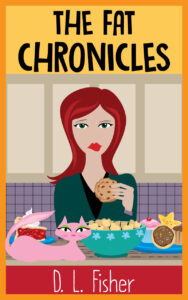
Different Ways to Write Fiction
“John Irving once told me he doesn’t start a novel until he knows the last sentence. I said, ‘My God, Irving, isn’t that like working in a factory?'”—Tom Robbins
There are probably as many different ways to write fiction as there are novels on Amazon.
SOME FICTION AUTHORS write with structured outlines and in-depth character analyses, knowing exactly how the novel will end. This is a logical and practical way to work through a story. Some very successful indie authors write formulaic genre novels they know readers want because that’s what is trending. It’s possible to achieve high sales and make a good living writing for the market.
Some authors start with an idea and let stream of consciousness take them on a ride. Even though they might begin with a protagonist in mind, without the tight reins of a planned-out story, that protagonist will undoubtedly develop a unique personality as though she is writing herself and her own dialogue. Secondary characters crop up and insert themselves, veering off on their own colorful tangents. Really surprising scenes appear. The ending always changes, or isn’t thought of at all, and it somehow connects invisible threads in the story. Such a writer will feel he or she isn’t writing at all—just watching as the story unfolds by itself.
There are countless mashups in-between.
“You can’t blame a writer for what the characters say.”―Truman Capote
I don’t mean to suggest that writing a novel is easy, however it’s done—it’s not. Rewrites and edits and changing things up that don’t fit and days when the muse is absent can be challenging, hard work, sometimes agonizing and even painful. You might be floating on pink, puffy clouds sipping nectar-of-the-gods one day and slogging through mud in flip-flops the next. Yes, it can be what normal people call work, but crazy authors call bliss.
“Don’t ever write a novel unless it hurts like a hot turd coming out.”—Charles Bukowski
What I’m getting at here—and this is the juicy bit—is there is magic in writing. No matter how structured you like to be when writing that novel, and even if you’re writing genre fiction for a specific demographic at a specific point in time when this or that is trending—it doesn’t mean you can’t let a little magic into the mix.
Don’t Choke out the Magic
Leave a door or two open for the muse to waltz in, take hold of your story and shake it up a little. So you took a side road from your outline, you added a bit that goes against the popular grain, a character pops up you hadn’t planned for—let it flow. You can always slash it later. Generally, with novels, there should be a good deal of merciless slashing in the rewrite phase. But in the first draft, let writing be loose and inclusive, not tight and exclusive. You can still work from an outline, still follow your plan, still write for the market, but don’t forget that you are you—and you have a uniqueness that needs a little room to stretch and express itself.
“Writing is magic, as much the water of life as any other creative art. The water is free. So drink. Drink and be filled up.”―Stephen King
On the other hand, it’s all good. Okay, so you don’t want to take chances on risky adventures into the labyrinths of the imagination, when you have a deadline, bills to pay, marketing to do, a book to finish. I get it.
In fact, I have a twinge of envy for indie authors who can keep pumping out books for the trending market. Though I must add a caveat here and express my absolute loathing for the romance “billionaire” genre. Aside from the absurdity of it, and the fact that it was born out of that hurl-it-against-the-wall book—Fifty Shades of Stupid, or something like that—I feel it’s the epitome of selling out as a writer.
No offense to anyone capitalizing off that massively successful, massively horrid set of “billionaire” books, and you’re probably laughing at me all the way to the bank, because from a business standpoint it’s smart.
“Better to write for yourself and have no public, than to write for the public and have no self.”―Cyril Connolly
Okay, so that was a bit harsh Cyril. Because we all should do whatever the heck we want in this life. There is no right or wrong way. What works for me does not necessarily work for someone else. And it’s completely unique in every case.
Writing a novel can be a deliciously rich experience—full of surprise, pain, elation, love, hate, illumination, self-discovery, excitement, frustration, challenges up the wazoo, and a host of other descriptors. It just depends on how crazy you want to get. Personally, I like to get as crazy as possible, and being structured gets in my way.
Whatever you choose to do in your writing, I will leave you with the wise words of one damn sexy dude. (They’re not really his words, but let’s pretend they are—after all, we’re talking about fiction here.)





